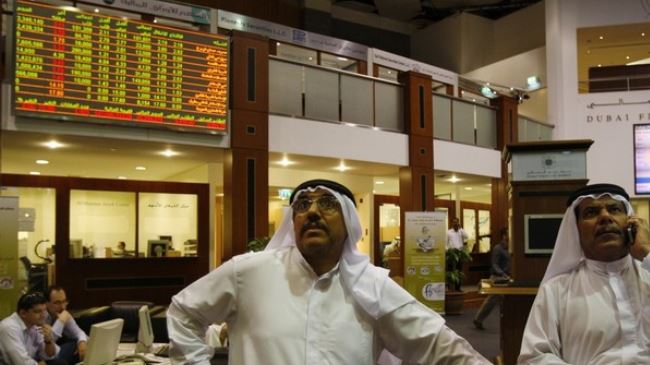[caption id="attachment_133534" align="alignright" width="137"] Arab stock markets plummeted on November 30, 2014, after a decision by OPEC to maintain crude output in an oversupplied market.[/caption]
Arab stock markets plummeted on November 30, 2014, after a decision by OPEC to maintain crude output in an oversupplied market.[/caption]
Share prices in Persian Gulf Arab states have slumped following a decision by the Organization of the Petroleum Exporting Countries (OPEC) to maintain crude output in an oversupplied market.
Bourses of the member states of the Persian Gulf Cooperation Council dived on Sunday after a two-day closure following the OPEC decision on November 27.
Dubai Financial Market was trading at 4,273.0 points after slumping more than 5.0 percent and the Abu Dhabi Securities Exchange was trading at 4,753.0 points after seeing a drop of 1.0 percent.
Kuwait Stock Exchange also shed 2.0 percent to 6,846.50 points, and Muscat Stock market witnessed a loss of 1.8 percent.
Qatar Exchange dropped by 4.0 percent below the 13,000-point mark.
There was no report from the Saudi bourse, the largest Arab capital market, as it opens later.
At its 166th ministerial meeting held in the Austrian capital, Vienna, on November 27, OPEC �decided to maintain the production level of 30 million barrels per day,� where it has stood for three years.
OPEC was under pressure from some of its members, notably Venezuela and Ecuador, to cut output to reduce supplies and push prices back up. However, the call was rejected by Persian Gulf member states, including Saudi Arabia.
OPEC, a Vienna-based intergovernmental organization of 12 oil-producing countries, pumps out about 40 percent of the world�s oil.
The next OPEC output meeting is set for June 2015.
By Press TV
The Iran Project is not responsible for the content of quoted articles.

 QR code
QR code